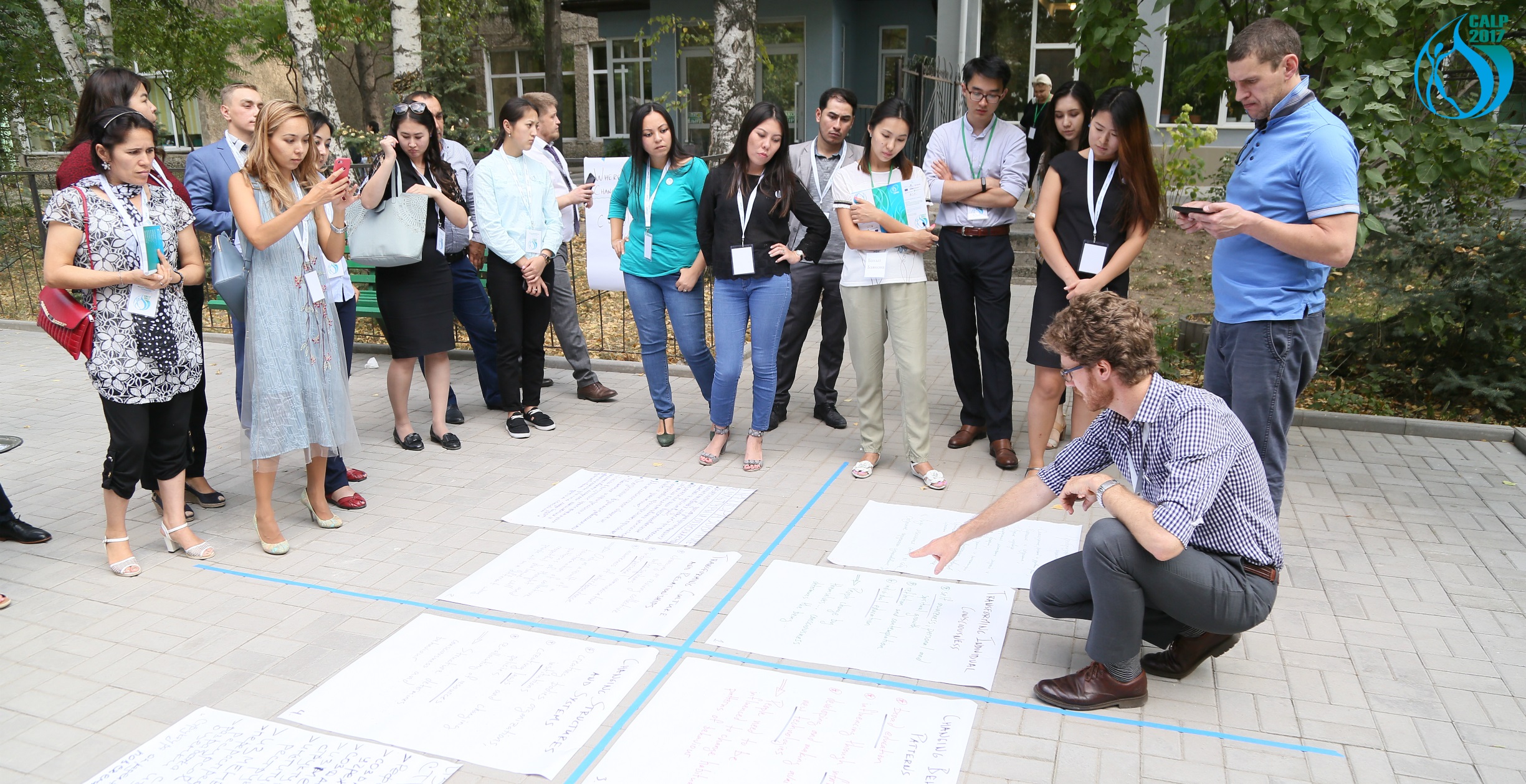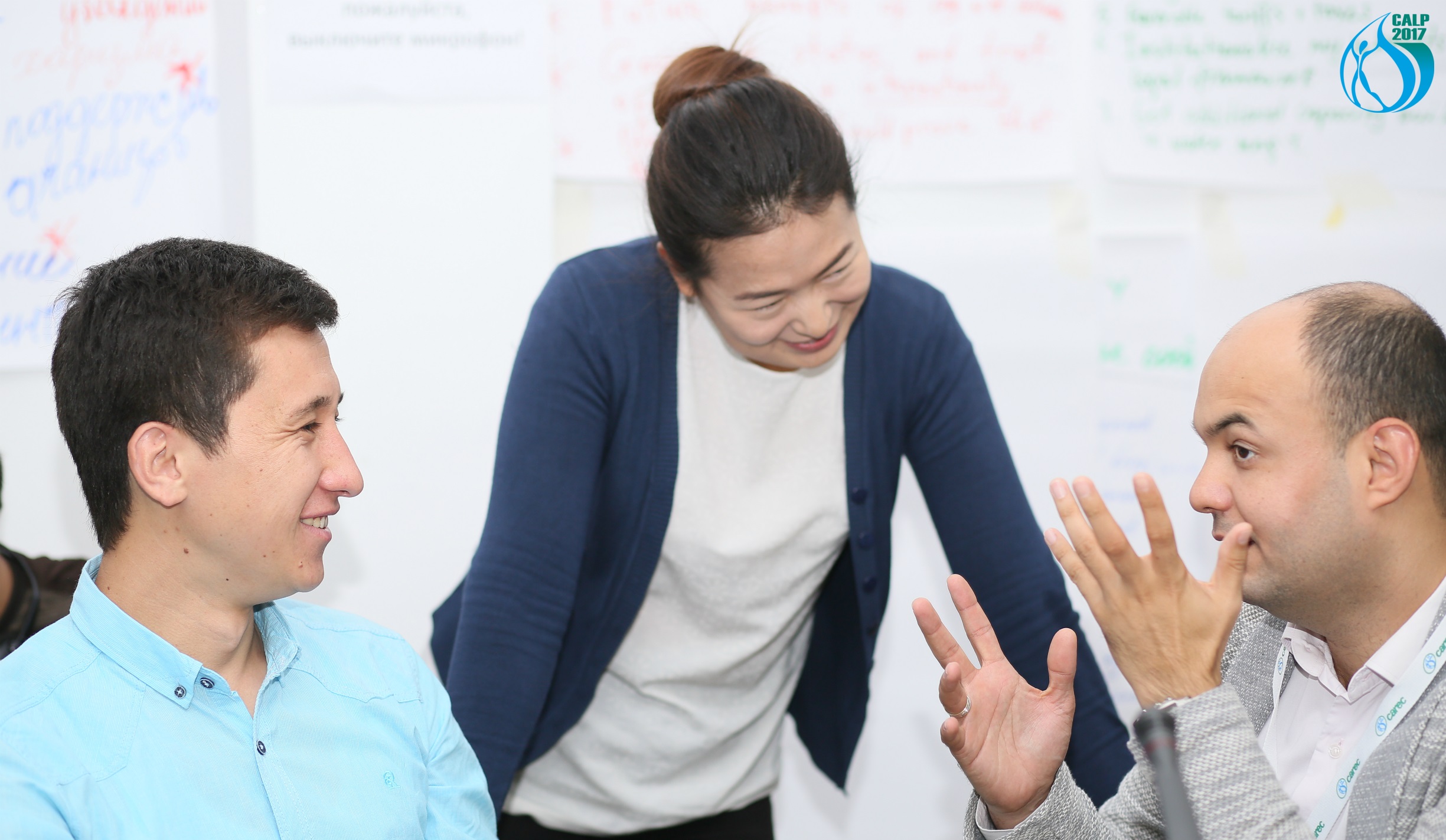CALP this year: updates
September 11-19, Almaty hosts the Eighth Central Asian Leadership Programme on Environment for Sustainable Development. In course of active discussions with international and regional experts, young specialists from various fields are considering the advantages of regional cooperation on green economy, water management and energy.

Thus, six graduates from Kazakhstan, the Kyrgyz Republic, Tajikistan, Turkmenistan, Uzbekistan and Afghanistan addressed to new participants to inspire and share personal success stories.
"CALP is a great opportunity for young professionals working in any field to gain comprehensive knowledge on the goals for sustainable development of a modern global society," said Nataliya Chemaeva, a graduate from Turkmenistan, who now works at the Scientific Information Centre of the Interstate Commission for Sustainable Development and GIZ.
There were also official words of farewell in eight languages: English, Russian, Kazakh, Kyrgyz, Tajik, Turkmen, Uzbek and Farsi. The participants are called to promote the ideas of partnership for mutual prosperity, upholding the principles of sustainable development and to stand on protecting the environment.
"This is a program that helps leaders to unite around a common goal – protecting the environment, developing the ecological culture of people," comments Nodira Dzhanibekova, a graduate from Uzbekistan, Gulistan State University.
This year, CALP focused on "nexus between water and energy resources and ecosystems" and regional cooperation in promoting green economy on the occasion of EXPO-2017 in Astana. Since the program is very intensive and includes many classes, participants need to learn a large amount of information. To facilitate it, there are breaks in the form of games. In addition, to enhance interaction between participants, facilitators perform exercises with them to build a team and develop leadership qualities.

The latter, by the way, goes through conversations with Dominic Stucker – the coach of collective leadership. Together with the participants, Stucker considers the role of the individual in building team leadership, and also several levels from which any changes begin.
Today there was a debate. Do leaders need scientific articles? What is primary in solving environmental issues – science or practice? What are the reasons for the gap between them? Participants discussed the efforts that contribute to overcoming "academic isolation" in the region. For example, the principles of mentoring, the removal of language barriers and the use of the lack of geographical boundaries on the Internet.
There are going to be sessions on the implementation of environmental conventions in Central Asia, study of examples of SDG’s projects and initiatives, consideration of the role of business, and much more.

Do not forget to follow the news on our website as well as on Facebook and Twitter by hashtags #CAREC_news #CALP.
CALP 2017 is being conducted in cooperation with UNEP with the support of the Government of Norway, the OSCE Program Office in Astana, the European Union, USAID and the World Bank.
